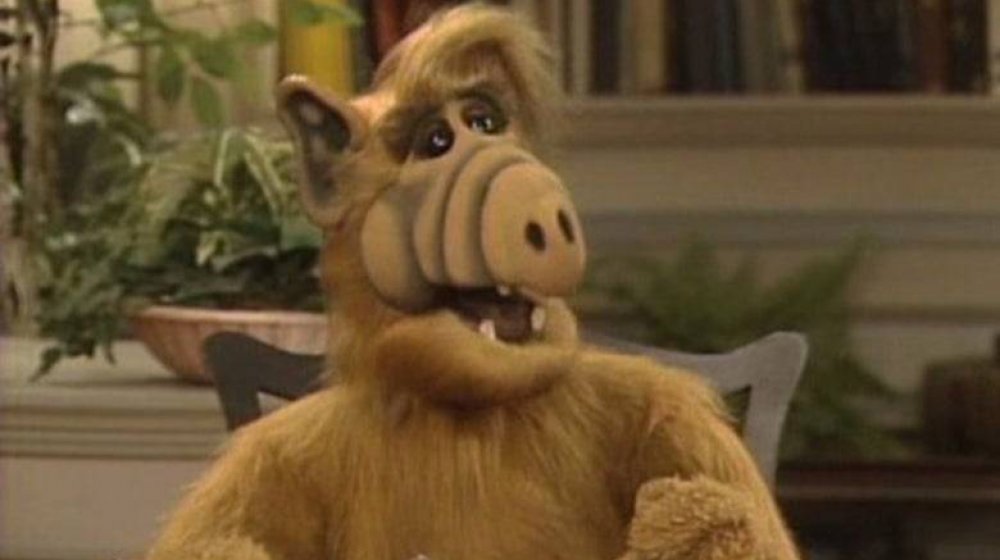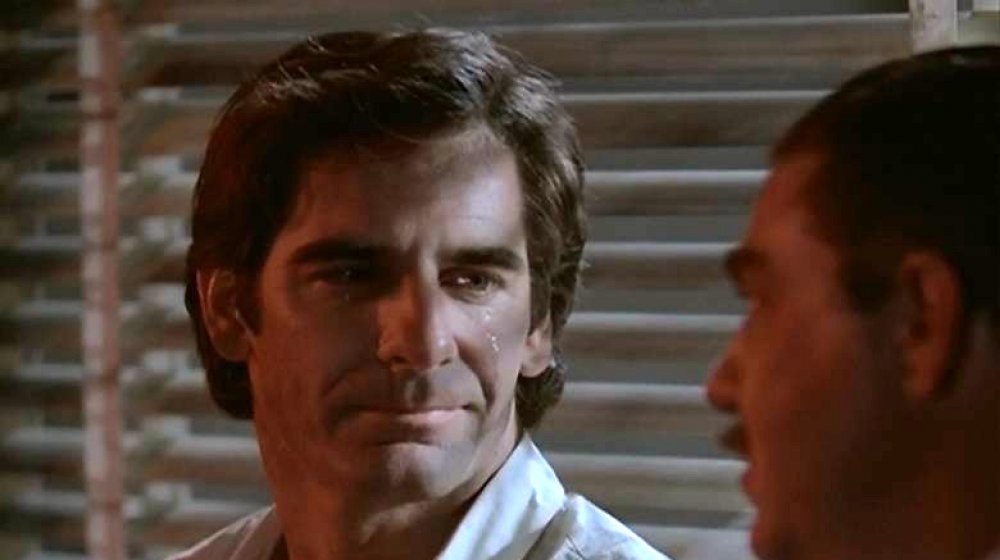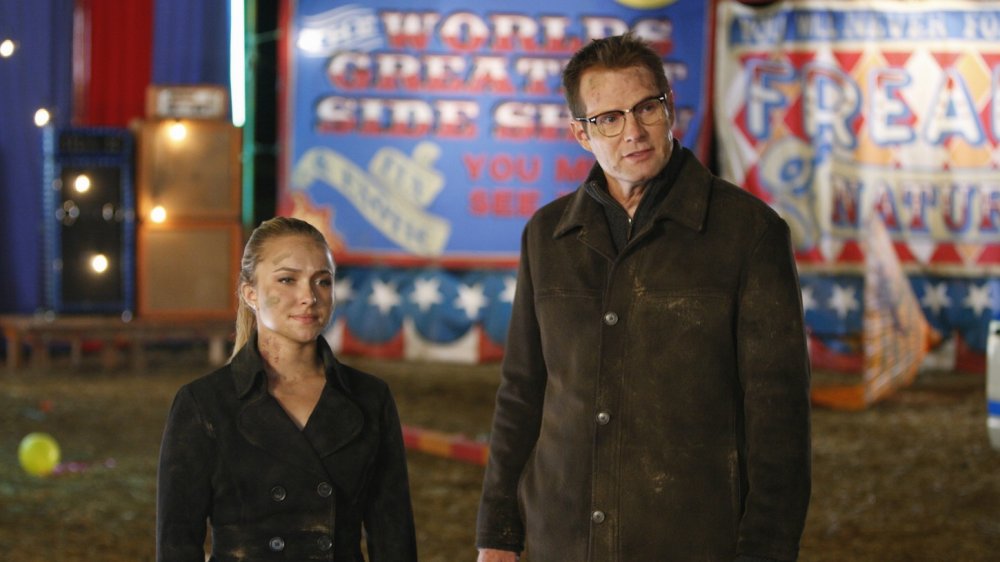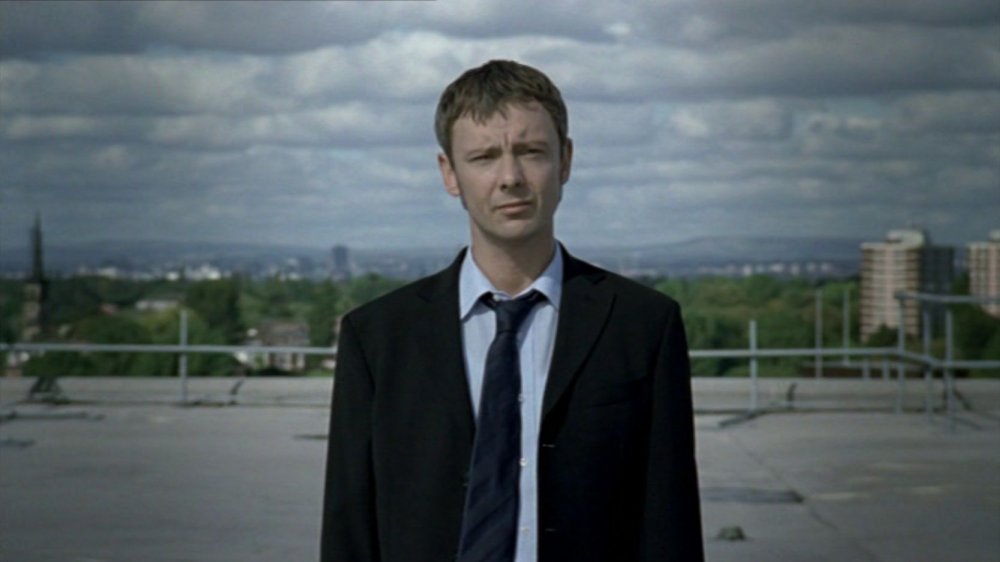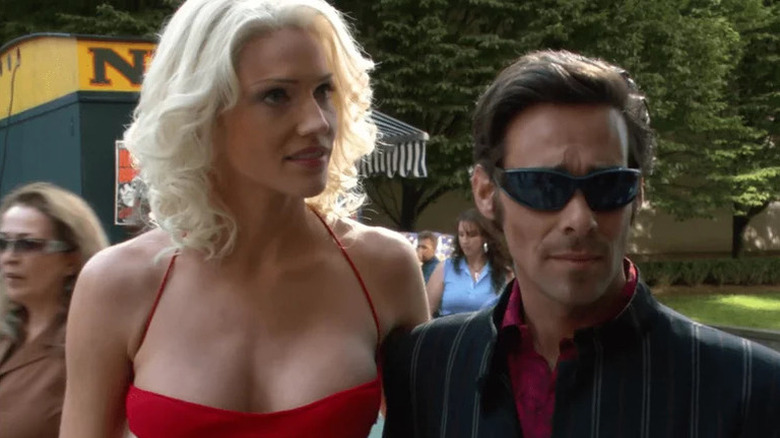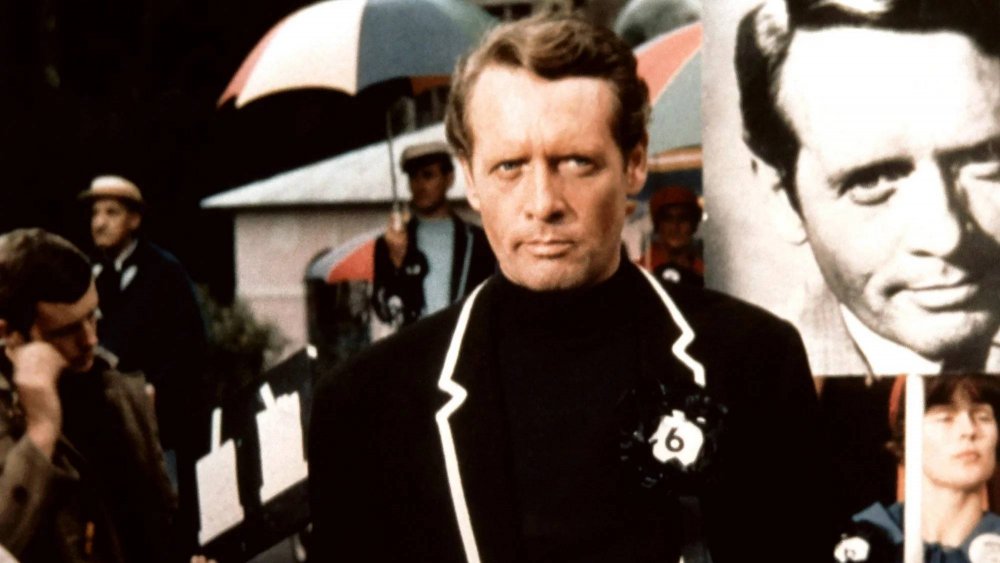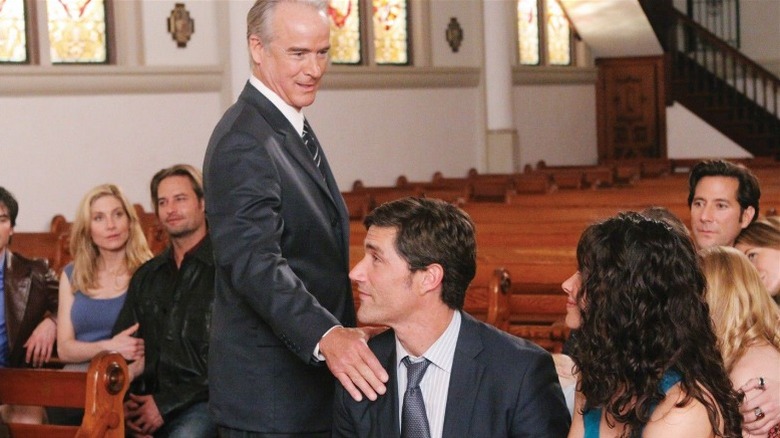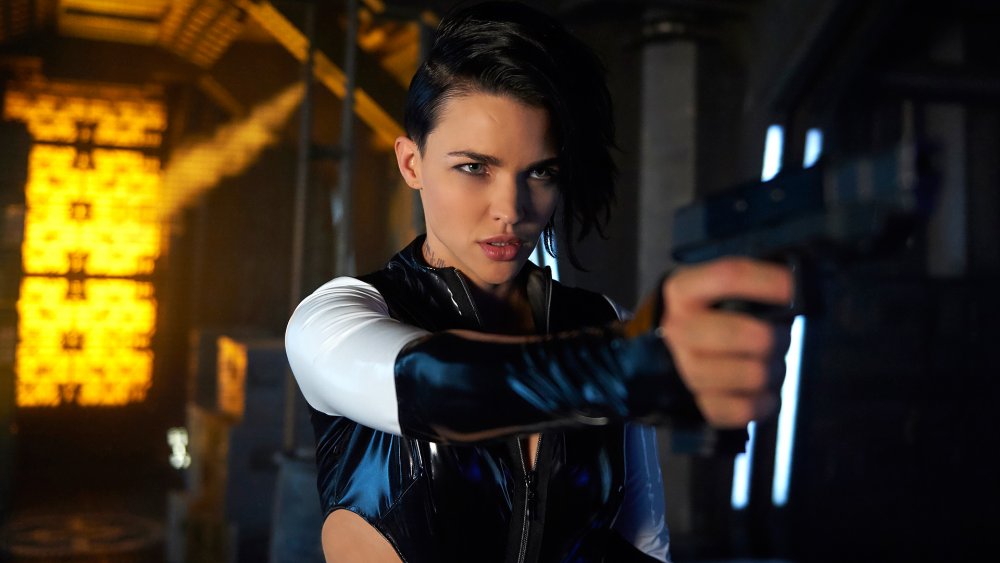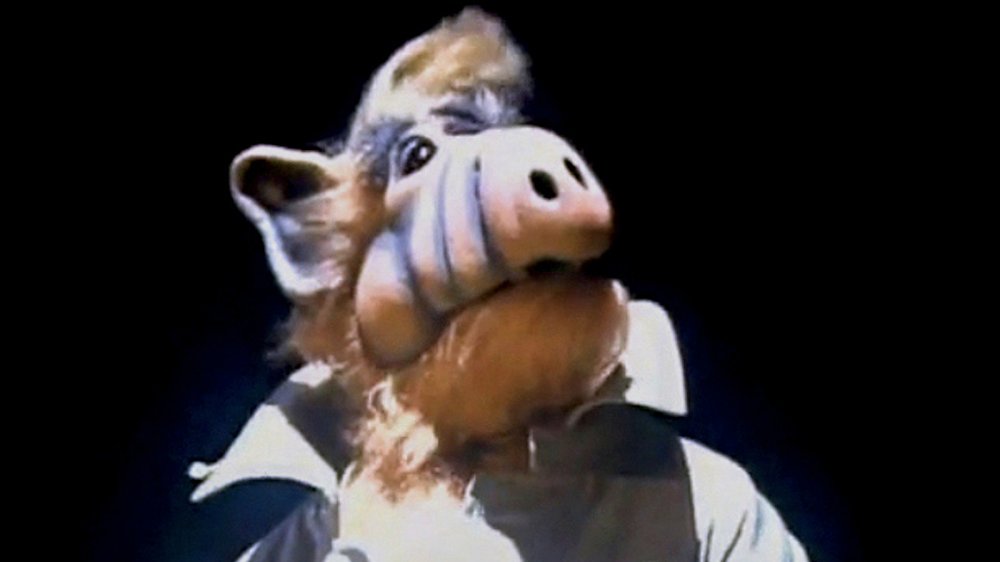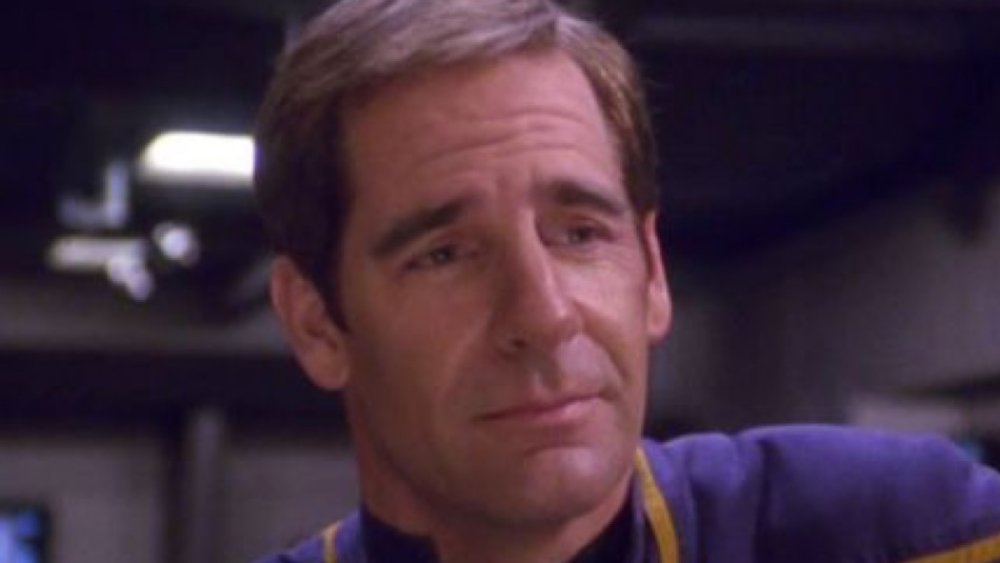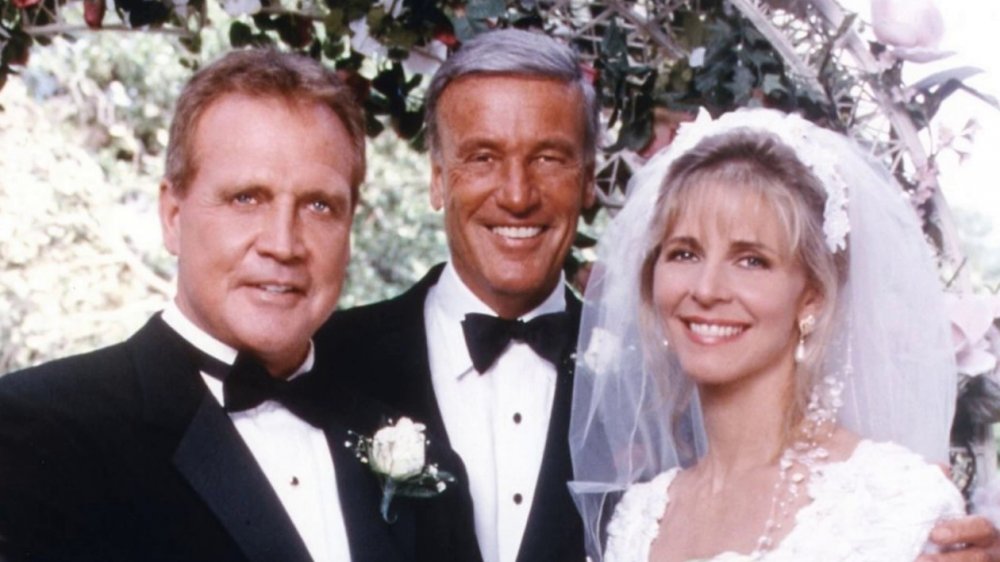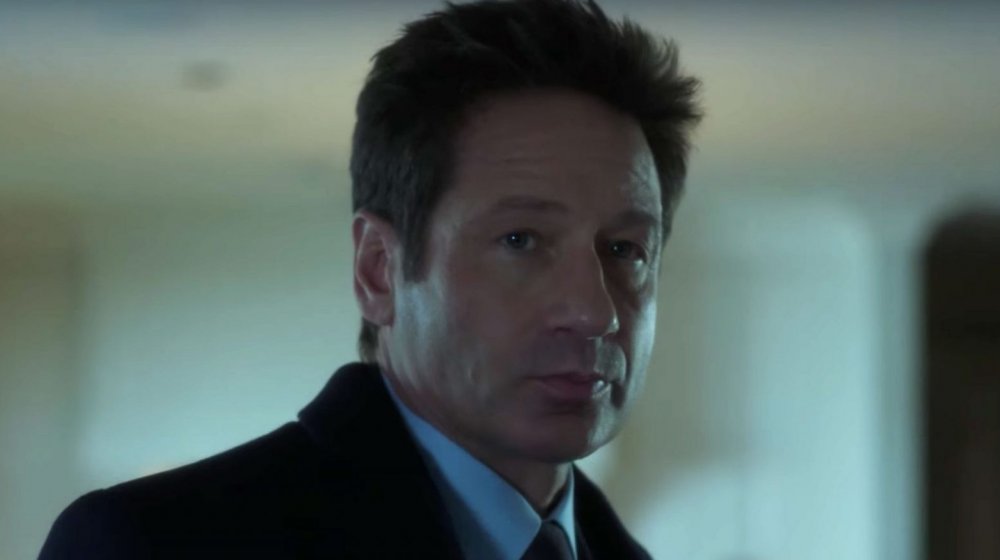Sci-Fi Shows Ruined By Terrible Endings
A good series finale ties up a show's plot threads in a satisfying way. But as everyone knows, it's incredibly easy to fumble that final episode. Terrible plot twists, lackluster reveals, and controversial couples, inserted just before the curtain falls, can erase the goodwill a show has built up over the years. Sometimes, if it's bad enough, a finale can tarnish all memories of its show — even the good ones.
These sci-fi series are perfectly awful examples of this lamentable phenomenon. For some, the finale retcons fans' understanding of everything the show did up until that point. For others, the finale serves as a sad reminder of what could have been, had the show been given another chance. Some leave dozens of loose ends dangling. Some attempt to wrap things up too neatly. Some are tonally inconsistent. All of them are disappointing — and all of them loom large in fans' understanding of the show as a whole. We're here to examine the worst finales in sci-fi television, no matter how much it makes us shudder. Spoiler warning: We're going to reveal every last detail of these shows' endings, in an effort to fully explain why they're so darn detestable.
Quantum Leap leaves Sam in limbo
Quantum Leap follows the adventures of Dr. Sam Beckett for five fascinating seasons. An experimental physicist with six degrees under his belt, Beckett gains the ability to leap through spacetime and inhabit the bodies of various people throughout history, in order to right the wrongs of the past. His adventures come at a terrible price, however: He can't return home until he has put history to rights ... and he won't know he's done that until he's leapt home.
Despite its poor time slots, Quantum Leap's blend of humor and social commentary garnered a fanbase. But due to declining viewership, it ended after five seasons. In the series finale, "Mirror Image," we learn that Sam can return home if he chooses — but instead, he decides to go back in time and save his friend Al's marriage. In doing so, Sam willingly makes it so he and Al never met, trapping himself in a paradox and giving up the life he so desperately wished to return to throughout the duration of the series. Sam's fate is finally revealed in the show's last frame: "Dr. Sam Beckett never returned home."
This ending changes the mood of the show entirely. Instead of being wacky misadventures, each episode is reframed as one man's fruitless quest to return home. He will, apparently, just keep going through these motions... forever. That's not just bleak — it's horrifying.
Heroes had already squandered its potential
Heroes has gone down in television history as a truly legendary squandering of potential. For those of you who weren't paying attention to the superpowered TV landscape in 2006, Heroes follows several different characters who discover they have superpowers. They each proceed to use those powers in various ways to help the world. Solid premise, right? Too bad about the execution: Heroes goes on to struggle endlessly with tonal inconsistency, a slapdash approach to character death, and weak romance writing. The first season is a whole lot of fun, but seasons two and three are overwhelmingly messy.
Heroes' fourth and final season marked something of a creative rebound, as it focuses on the characters as opposed to soapy, world-ending drama. The finale even ends with a cool cliffhanger of Claire showing the world she can heal herself. Finally, the world is going to know about superpowered individuals! Everything the show has promised is finally going to be explored!
But, of course, it isn't: Heroes ends on that hopeful, exciting note (minus a brief revival). Unique among the entries on this list, Heroes' finale sucks the joy from the series because it's such a potent reminder of the show's potential — which inevitably leads to the realization of just how little of it was actually fulfilled.
Life on Mars settles for a finale cliche
Life on Mars follows Sam Tyler, a cop from 2006 who ends up in a traffic accident. He wakes up in 1973, and must discover what happened to him and how to return home. In the final episode, we get all the answers we were looking for — but not in a way anyone expected.
The finale reveals that everything in the series up until that point is the result of our protagonist being in a coma. That's right: It was all a dream. Sam wakes up back in his own time, but he now finds real life to be utterly dull. So what does he do? Why, he throws himself off the roof of a building and back into his fantasy world, where he can be truly happy once again. The ending is ambiguous, but implied to be an afterlife of sorts — a girl who has symbolized death throughout the series "turns off" the television at the episode's end, implying that Sam is truly beyond life's tether. Moreover, Ashes to Ashes, the sequel series, shows Sam's personnel file, complete with a label that makes it way less ambiguous that he took his own life. It's a downer ending of the most extreme sort and a total cop-out, which sits oddly beside the rest of the ambitious series.
Battlestar Galactica brings angels into sci-fi
2004's Battlestar Galactica quickly became one of the most critically-acclaimed and popular sci-fi series of the 21st century. Fans adored the story of a distant civilization of human beings, living life in the Twelve Colonies as they fight off attacks from the Cylons.
The series ends with the three-part finale, "Daybreak." Fans ended up seriously divided, following its revelations. "Daybreak" reveals the hallucinations Gaius Baltar and Six had throughout the series were actually angels. We're not talking about some sci-fi reinterpretation of angels — they're just straight-up angels. "Deus ex machina," which literally translates to "god from the machine," has never been more appropriate: God literally shows up at the last second to change the fundamental nature of the series.
Questions abound to this day. Was God just messing with the characters by sending them angels? Why does God give the crew such a roundabout way of returning to Earth, necessitating so many brutal assaults? "Daybreak" attempts something daring, but whether or not it pulls it off is still a matter of major debate.
The Sarah Connor Chronicles ends with so much potential
The Sarah Connor Chronicles uses the Terminator mythos as a storytelling springboard. The results are ... a bit of a mixed bag. There are plenty of bright spots, to be sure, but there are also a whole lot of frustrating moments within the adventures of John and Sarah Connor in the aftermath of T2: Judgment Day.
The Sarah Connor Chronicles' series finale is actually a really good episode of television. While the first two seasons focus on the lead-up to the apocalypse, the finale makes it clear that we're finally about to get into the endgame, in regards to the Terminators' final plans. It perfectly teases fans with what's to come: If the show had been renewed for the third season the finale foretells, it seems like it would have been great. Alas, it never came to be: The show was canceled. Thus, the series finale has become a frustrating reminder of what could have been ... and what the show should have focused on from the start.
The Prisoner ends on a silly note
The Prisoner is a British sci-fi series from 1967 that consists of a single season, spanning 17 episodes. It boasts an intriguing plot, involving an unnamed intelligence agent who's trapped in a strange coastal village. It's become a cult classic for many reasons: It's a fascinating allegory, a gripping spy story, and a psychological thriller. Its finale, however, remains controversial, even among diehard fans.
The finale had its work cut out for it, given how many mysteries needed wrapping up. Instead of giving fans straightforward answers, things take a turn for the weird. In the final episode, our protagonist, Number Six, discovers a man wearing a gorilla mask. Upon removing the mask, he finds a clone who looks exactly like him. Yes, everything on this island has been run by a clone in a monkey mask, who blasts off in a rocket ship. You read that right: Clones, monkey masks, and rocket ships are all part of this finale.
It's an odd ending to be sure, and it casts a pall over the otherwise excellent series. All of the twists and turns the series takes throughout its run aren't as intriguing when the solution involves such sheer absurdity. Numerous directors have attempted to bring The Prisoner to the silver screen — perhaps one of them will set this strange ending to rights.
Lost still had a lot of questions to answer
There was a period of time when all anyone could talk about was Lost. Even if you've never watched the series, you likely know it involves a group of survivors of an airplane crash who end up stranded on a mysterious island. Flashbacks and flashforwards reveal more information about the characters, while their time on the island is marked by strange happenings involving polar bears and smoke monsters. It had the whole world in its grip — and then it fumbled.
The Lost finale fails in two aspects. First, audiences wanted to know what exactly was going on with the island. Was it purgatory? Was it just some random island? The show earned a reputation for constant ambiguity, which became a double-edged sword: Establishing mysteries is one thing, but failing to reward fans for dedication and patience is quite another. The finale leaves fans hanging on this central question. It's the afterlife! And also, the island holds the source of all life and death! And it's also sort of not the afterlife! It's muddled, and thus disappointing.
Taken as a whole, Lost is cheapened by its ending. After all, why would people go through the trouble of rewatching the series when there's no reward at the end of the tunnel? It's a slog, and that's one word that should never be used to describe entertainment.
Dark Matter ends on a massive cliffhanger
Dark Matter follows six people as they wake up with amnesia in stasis pods in outer space. They don't know who they are, or what their lives were like before getting onboard the starship Raza. Throughout the course of the series, they attempt to find out more about their identities, as well as what happened to them to put them in this predicament.
Solid sci-fi premise, right? The show had a whole lot going for it. Unfortunately, due to some behind-the-scenes issues, the show ends with season three. It's too bad, because the last episode is really something special.
For one thing, the finale has some truly fantastic action sequences, featuring way better CGI than you would expect out of a TV series. For another, a major plot development emerges: In the midst of an epic battle, an imposing new fleet enters the scene. It's a fascinating twist — and that's when the episode (and thus, the series) ends. There's no closure as to what exactly this new fleet is, or how our heroes will fare against it. It's a finale without any kind of catharsis. As an installment, it would have been great. As a finale, it's terrible.
ALF ends in a surprisingly dark way
ALF is an iconic '80s sitcom, starring a wisecracking alien who crash-lands in the American suburbs and ends up living with the Tanners, a nice, middle-class family. It's a light, breezy show, provided you could get past ALF's preference for eating cats — which makes its dark ending all the more strange.
The 1990 finale, entitled "Consider Me Gone," sees ALF receiving a broadcast over a shortwave radio. The transmission from Rhonda and Skip, his fellow aliens, informs ALF that they've acquired a planet and want to create a new home. ALF leaves the Tanners' house to reunite with them. The plan soon goes awry when he's captured by the Alien Task Force, which has intercepted the transmission. ALF is now a prisoner. And that's it. Goodnight, kids!
Granted, the series did get a happier finale in the form of Project: ALF, a TV movie that debuted in 1996, but for years, fans were left with this bleak finale. Who knows what the extraterrestrial authorities had planned for ALF? For such a chipper series, it's one seriously sour note.
Enterprise's ending belonged to another Star Trek show
After spinoffs like Voyager and Deep Space Nine, the television arm of the Star Trek franchise went back to the beginning in 2001 with Enterprise. A prequel to the original Star Trek series from the '60s, it takes place before widespread space exploration, focusing on the travels of Earth's first warp-level galactic starship as led by Captain Jonathan Archer, portrayed by sci-fi veteran Scott Bakula of Quantum Leap.
The series never had the cultural impact of Star Trek or Star Trek: The Next Generation, and while it was one of UPN's highest-rated shows, Enterprise's best spot in the yearly TV rankings was a lowly #115. The network canceled the show in 2005, and Enterprise sputtered to its end with an episode that UPN head Dawn Ostroff said "satisfies its loyal viewers." Granted, lots happens: lovers T'Pol and Commander Charles "Trip" Trucker break up, and then Trip shockingly dies as Captain Archer tries to guide the ship to one of the earliest events in the creation of the United Federation of Planets. That's all finale-worthy stuff, but it came with a twist and an unnecessary framing device: Everything that transpired is witnessed in the form of a Holodeck adventure witnessed by Riker and Troi from Star Trek: The Next Generation as a way to help them make a decision after the events of the 1994 episode "The Pegasus." Even cast member Jolene Blalock (T'Pol) called the episode "appalling."
The Six Million Dollar Man's less-than-bionic finale
Steve Austin, a.k.a. The Six Million Dollar Man, and Jaime Sommers, or rather The Bionic Woman, were made for each other — almost literally, with both parties enhanced by scientists to make them into the most powerful made-for-TV superheroes of the mid-1970s. Austin's show came first and spun off Sommers', with ABC cancelling both shows in 1978. But the saga of the better, stronger, faster couple would continue with a series of three made-for-TV movies in the '80s and '90s. In the final one, 1994's Bionic Ever After?, it appears as if the star-crossed duo with special and amazing abilities might finally do what they were never able to do on either of their '70s TV shows and get married — fully turning the franchise into less of a sci-fi show and more of a soap opera. Along the way, things get pretty nutty — Steve jets off to fight terrorists while Jaime's bionic parts are infected with a computer virus. It ends happily, if not in a cheesy fashion, with Steve and Jaime at the alter skipping the formalities of the ceremony, antsy to get to the "I do" part.
The X-Files had too many twists
The X-Files ranks with the various Star Trek series and Doctor Who as one of the most popular, acclaimed, and greatest sci-fi TV shows of all time. But it had a hard time nailing the ending. After nine seasons, two movies, and two miniseries, The X-Files ended in 2018, apparently for good, with the episode "My Struggle IV." Show creator Chris Carter told TV Insider that he wanted to tell the stories of the characters "who are central to the mythology": Agents Fox Mulder (David Duchovny) and Dana Scully (Gillian Anderson), the central-conspiracy-leading Cigarette Smoking Man (William B. Davis), and Mulder's son, William (Miles Robbins).
The finale is overstuffed, and tries to tie up too many loose ends with one wacky, out-of-nowhere revelation after another. Viewers see Mulder get shot, but he's not really Mulder, but rather William who also isn't really dead, but an immortal shapeshifter who took on the appearance of Mulder. The Cigarette Smoking Man does die, and Scully reveals that she's pregnant with Mulder's baby.
